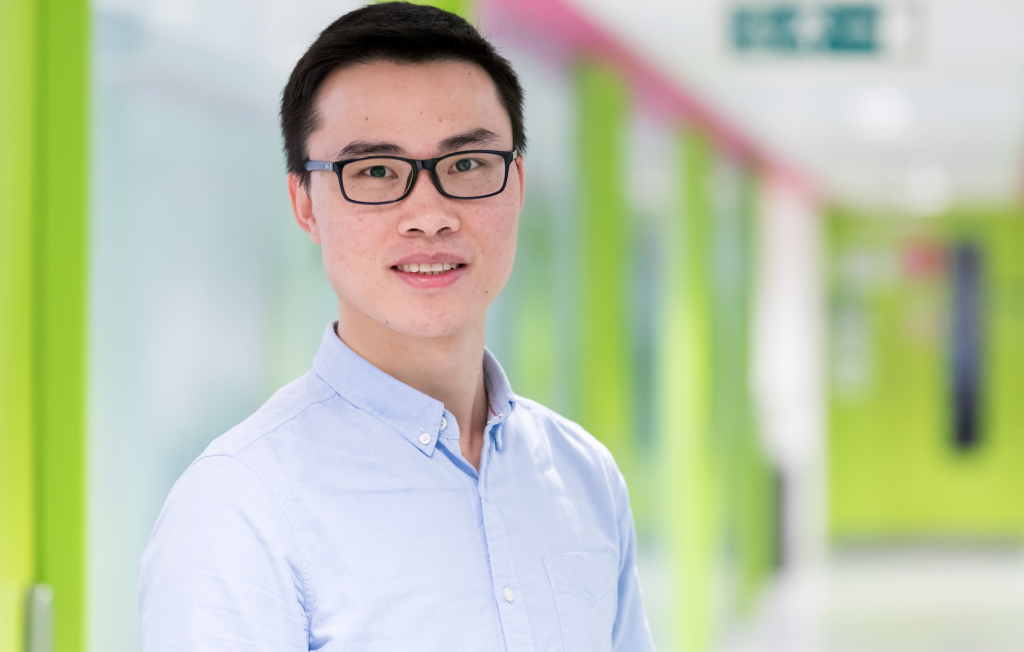For National Postdoc Appreciation week, some of our postdocs share their journey into research and advice for those thinking of a career in academia. Xin is a Research Associate in the group of Professor David Dye.

What led you to postdoc research?
I have always been interested in materials science. I like investigating the basic scientific questions in materials science and applying the accumulated knowledge to solve engineering problems. Therefore, I wanted to stay in academia.
After my PhD study, I felt that I was still not ready to independently lead a research group and also wanted to fill my research toolbox with more skills and expand my research fields. Postdoc research can give me this training. As a postdoc, we can participate in different projects and research topics, and we get more opportunities to collaborate with other research teams in both academia and industry. It can be seen that postdoc research also helps expand our network, which is very important to our future career.
What do you enjoy about your current research?
My current research is mainly focused on developing novel Ti alloys for jet engines and high-strength steels for automobiles to improve their fuel efficiency. The project is to address the pollution issues arising from the transport sector and future resource limits.
It involves answering both basic scientific and engineering questions, which is quite challenging but excites me a lot. To resolve these questions, I need to employ different research methods/techniques and collaborate with other scientists within and outside Imperial. This strengthens my independent and collaborative research skills. I also like the atmosphere in my group and Engineering Alloy (EA) theme. EA theme performs diverse research on metallic materials, and we have EA seminar regularly, which helps broaden my research horizon.
My PI, Professor David Dye, is very supportive. My colleagues are not only smart but also very helpful. We get along very well and often help each other in labs and joke a lot though research work sometimes makes us serious and stressed. We also have many after work activities which bring us much fun and keep us closer.
What has been the highlight of your academic journey so far?
Many good things have happened during my academic journey. Just mention a few here. I have managed to discover some small interesting scientific questions and find ways to resolve them independently or together with collaborators. This has led to 11 peer-reviewed journal papers and good progress in introducing novel alloys which have the potential for industrial applications.
Additionally, I have gained different research skills and excellent research collaborators during the path. As a result, my confidence in the future research career has been enhanced. Scientific conferences are another highlight. The trip to Ti-2019 in Nante, France and TMS2020 in San Diego, US is unforgettable to me. I had a lot of fun with my colleagues. Besides, through communication with other attendees on these conferences, I have got new research ideas and established new connections.
What advice would you give to those who are considering a career in academia?
I suggest you think about what academic life is in your mind and what you expect from such a career, then talk to some seniors about your thoughts to make sure you are seeking the right career. Independent researchers not only do science but also apply for funding and grants, form and leading a research team, writing and reviewing papers, managing labs and probably teaching etc. It sounds fun but it can be very stressful and challenging.
If you are considering postdoc positions, I advise thinking about your research interests and goals, abilities and skills you want to gain, then find the proper projects and make a plan for your postdoc period. The plan could help you work efficiently and remind you about your original objectives when you lose your track because of being busy.
I strongly recommend Postdoc and Fellows Development Centre to postdocs/fellows at Imperial, which provides a wide range of training and help to postdocs/fellows.